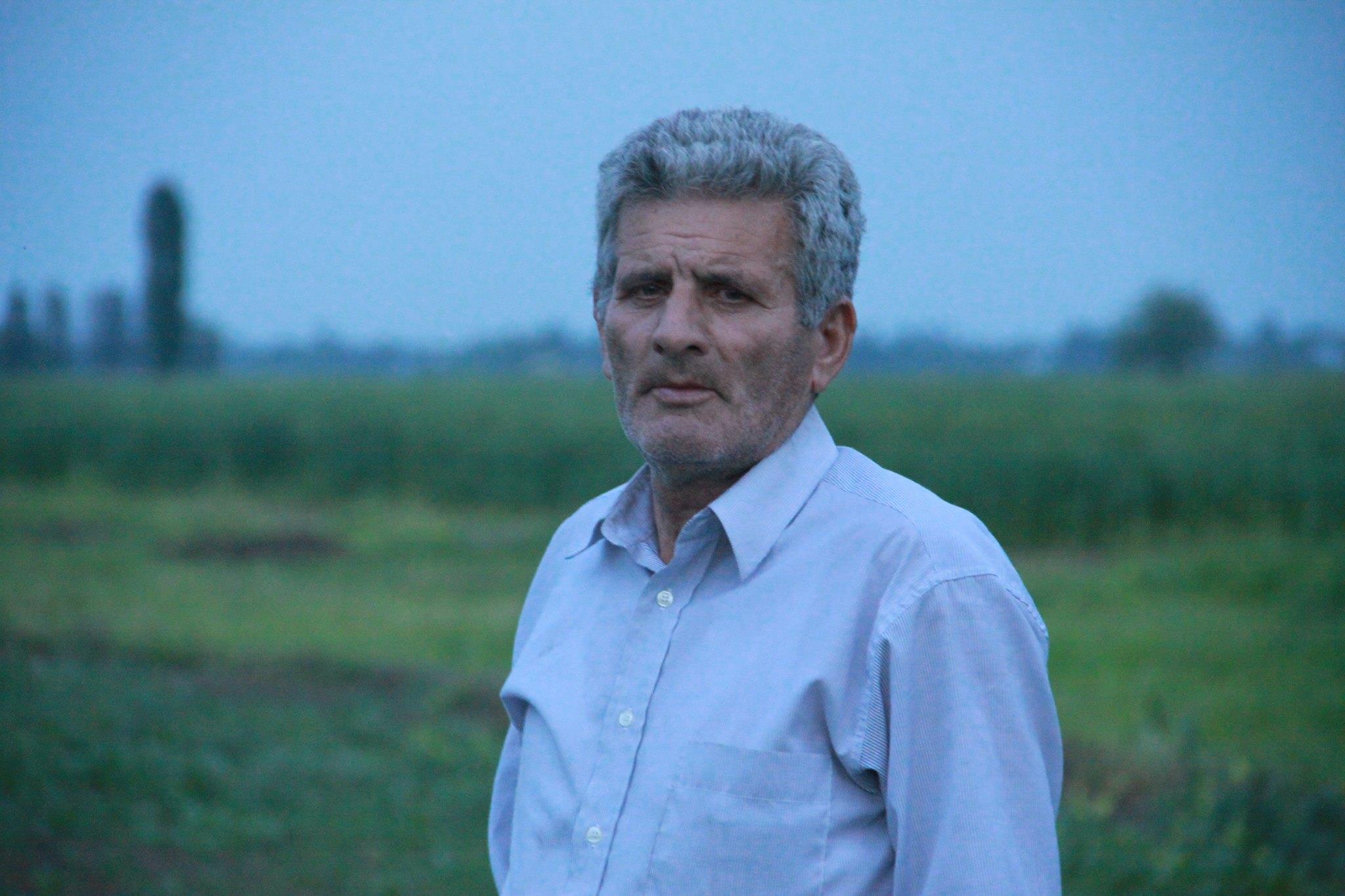Camels at the quarry
You will find a man with a sack of onions over his shoulder at any market in Baku. He is carrying his sack, spattering the onion peels on his way. He is going to build up a stockpile for winter, since that’s what his forefathers did. That’s the so-called average Azerbaijani. Then he will buy a sack of potatoes, also for winter. The man with the sack is not much concerned about the labor that a farmer has put in those onions. But he does care about the price, and if asked, he will say onions are sold at a too high price.
Onion double-trouble
Babek Abbasov lives in Mahryzly village, Aghdam district. He has been cultivating onions for 7 years already, but his family could hardly make both ends meet. The matter is that Babek’s land plot is very small and he has to lease the land from his fellow villagers: “I’ve got a small land share. So, I’m not entitled to the farmers’ benefits. Those, who lease out land to me, receive those benefits. Every year I plant onions on about 4 hectares of land. Then Babek tells about his ‘accounting’: he has to spend AZN 2,500-3,000 (US$1,535-1,841) in order to collect crop from 1 hectare of land, and he could earn AZN 3,200-3,600 (US$ 1,964-2,209). So, at the end of the season he received at least some money, but then there was a devaluation, everything increased in prices: fertilizers, seeds, plant medicines.
Whereas last year he was sold ‘problematic’ seeds, the onions decayed and, as a result, Babek lost AZN 1,500 (US$ 920) and now he is deep in debts.
We ask him about the prices. It turns out that on the land plots the onions are mostly sold in bulk, in 35-kg sacks. The price per sack amounts to AZN 3-4 (about US$ 2). Whereas in Baku, the same sack of onions will cost at least AZN17, i.e. AZN13 are lost somewhere on the way. It would have been cheaper to buy directly from a producer, but here we encounter a perennial problem of the Azerbaijani agriculture – there are no well-established distribution channels, the road transport is expensive and a producer simply can’t reach the Baku market.
In addition, there is a monopoly in the market and a farmer could hardly make ends meet.
 Babek Abbasov
Babek Abbasov
Subsidies and benefits
Normally, the state provides subsidies to farmers, but they were late this year: the Agriculture Ministry’s Subsidies Commission was expected to make a decision. Finally, in September, it was decided to allocate a little bit more that AZN 82 million (about US$50million) to the farmers.
Certain farmers are allocated subsidies for fuel and engine oil use based on the land plot area-AZN 50 (US$30) per hectare a season; additional AZN40 (US$25) are provided for cultivation of wheat, rough rice, cotton, tobacco.
The latest news: the government intends to take actions for the development of cotton production, and, therefore, it is going to pay AZN 0,10 (about US$0,06) per kilo of cotton.
Farmers also enjoy tax benefits, that is, they are exempt from all ‘entrepreneurial’ taxes, except the land tax; they are relieved from VAT and pay less for water. However, the greenhouse owners continuously complaining that the gas charge is ruining them completely.
And also, they are provided loans on preferential terms, but the farmers themselves complain that banks often put forward stringent requirements for getting loans: for example, an entrepreneur residing in Sabirabad district should mortgage the real property in Baku. Given the general instability of the economy, the entrepreneurs finally started taking less loans.
The Year of Agriculture
Reduction of oil revenues has urged the government to start looking for alternatives. Agriculture is among the priorities. 2015 was declared the ‘Year of Agriculture’; numerous resolutions, orders and decrees were issued. During the government session summarizing the results of 2015, Prime Minister Artur Rasizade, stated that production of agricultural goods increased by 6,6%, export-by 7,2%.
Last year was also the final year of the “State Program on Reliable Food Supply of Population in the Republic of Azerbaijan in 2008-2015.
The program stipulated the extent to which the crop yields, crop areas etc. should increase. However, Vahid Maharramov, an expert in agriculture field, says that the government’s agrarian policy didn’t contribute to the achievement of the aforesaid objectives, and the statistical data show that the program didn’t come to anything in the end: “Just one fact. In 2008, when the program was launched, the country produced 2,498,300 tons of grain, whereas in 2014 this index dropped by 118,900tons. “
The reasons
The ministry believes, one of the reasons for the low productivity is an improper use of land that the municipalities lease out to the farmers. Therefore, the farmers, who have failed to comply with their production commitments, are deprived of the land and annulled the contracts. For example, 104 hectares of land have been ‘returned’ in Saatli district alone; in Hajigabul-4,443ha. The situation is even worse on the Apsheron: over 19,000 hectares were allocated under the pastures for camels and a quarry has been recently discovered there.
Occupation of 200,000 hectares, a significant land area suitable for agriculture, by Armenia as a result of Karabakh conflict, is named as another reasons for the problems in the agriculture field. Nagorno-Karabakh and the adjacent areas really outstand with their favorable climate and fertile land. However, some experts believe that in case of efficient use of available land, Azerbaijan can achieve success in import substitution.
Vahid Maharramov, an expert, says that if the state structure had efficiently used the allocated AZN600million last year, it would have been possible to reduce the import dependence: “Overall AZN914million were allocated for this program. However, the situation is deplorable. We are lagging behind Russia, Ukraine, Armenia, Belarus and Kazakhstan in milk, potatoes and meat production. Potatoes are imported to Azerbaijan even from Armenia, through Georgia.
News
In April, President Ilham Aliyev signed a decree on setting up a special structure to address the perennial distribution problem-Food Procurement and Supply LLC. This organization is supposed to fulfill the farmers’ longstanding dream that they have been talking about in every interview for press: that they could simply hand over their produce to the state at a certain price and have no more worry about it.
Under the plan, the system was supposed to start operating by this fall. And the farmers, as well as the economic experts, are looking forward to the time when the results of the state-run programs could be seen by the unaided eye.
Published: 25.09.2016



















